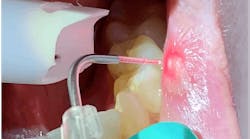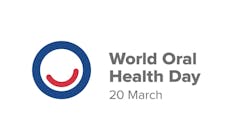Kellogg grant supports development of minority dental school faculty
The W.K. Kellogg Foundation has awarded a two-year, $200,000 grant to the American Dental Education Association Minority Dental Faculty Development and Inclusion (ADEA MDFDI) program to address oral health disparities experienced by vulnerable children and their families. The program aims to reduce barriers to dental care through academic/community partnerships that increase diversity in the dental workforce.
Research indicates that patients from diverse ethnic, racial, and socioeconomic backgrounds are more likely to seek health care from a minority provider. In addition, trends show that health professionals from underserved areas often return to those areas to practice.
The ADEA MDFDI program develops more diverse generations of allied dental health professionals to meet the significant unmet need for dental care across the United States. The leadership training model emphasizes interprofessional education and team-based care, cultural and linguistic competency, academic mentorship, and increased diversity in the academic pipeline.
“Children in particular need access to dental care in the right place at the right time to protect their overall health,” says Jeanne C. Sinkford, DDS, PhD, the ADEA’s senior scholar-in-residence. “These partnerships are breaking down barriers to dental care for the most vulnerable communities and helping to create a dental workforce better prepared for a growing and more diverse America.”
Over 108 million Americans lack dental insurance and thus access to dental care—and children in underserved communities are disproportionately affected by this epidemic. Untreated dental caries (cavities) was more than twice as high for Hispanic children (26%) and for non-Hispanic black adolescents ages 13–15 (25%) compared with non-Hispanic white children and adolescents respectively.
Building on lessons learned from twenty-four ADEA MDFDI academic-community partnerships, the program will extend its efforts to geographic areas with new or no existing dental schools. These new partners will work hand-in-hand with allied dental faculty to provide dental and preventive care to children and adolescents in underserved areas.
“The numbers speak for themselves, and they are telling us in no uncertain terms that we must tackle access to dental care head on,” says Richard W. Valachovic, DMD, MPH, president and CEO of ADEA. “We are so fortunate to have the ongoing support of the W.K. Kellogg Foundation as we work to ensure that geography and financial resources are no longer obstacles to good oral health.”
More information on the ADEA MDFDI program is available here.





